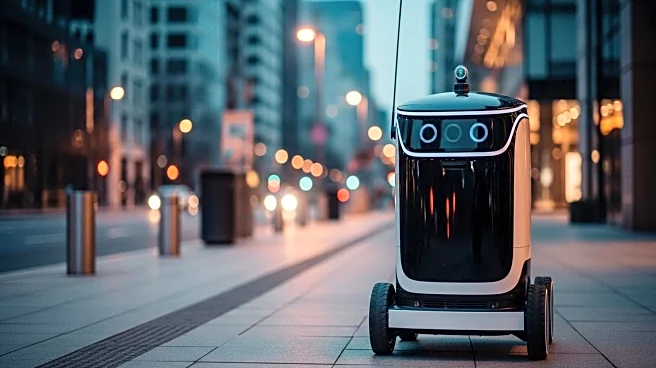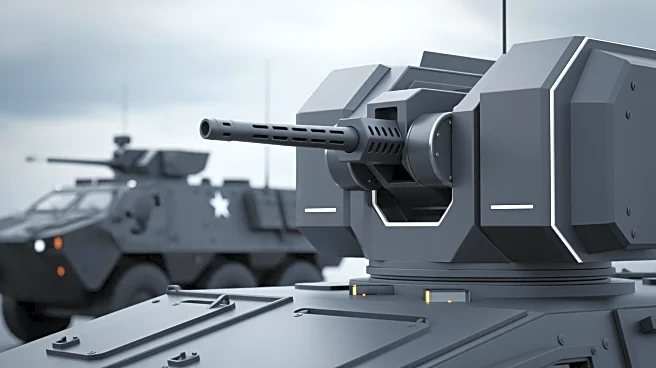What's Happening?
DoorDash, a prominent online ordering and delivery service, has entered into a multi-year strategic partnership with Serve Robotics, a company specializing in autonomous sidewalk deliveries. This collaboration aims to expand the use of autonomous robot deliveries across the United States. Residents in Los Angeles using the DoorDash app from participating merchants may soon receive their orders via Serve robots. The partnership is part of DoorDash's broader strategy to integrate various delivery methods, including Dashers, drones, and autonomous robots, to meet growing demand while reducing emissions and traffic congestion. Serve Robotics has already established a successful track record in cities such as Los Angeles, Miami, Dallas, Chicago, and Atlanta, completing over 100,000 deliveries from more than 2,500 restaurants.
Why It's Important?
The partnership between DoorDash and Serve Robotics signifies a significant advancement in the delivery industry, potentially transforming how goods are transported in urban areas. By incorporating autonomous robots into their delivery network, DoorDash aims to enhance efficiency, reduce delivery times, and lower environmental impact. This move could benefit local merchants by increasing demand and providing more delivery options. Additionally, the collaboration highlights the growing trend of automation in logistics, which could lead to reduced reliance on human labor and potentially lower operational costs for delivery services. As autonomous delivery becomes more prevalent, it may also influence public policy and urban planning, particularly in terms of infrastructure and traffic management.
What's Next?
As the partnership progresses, DoorDash and Serve Robotics are likely to expand their autonomous delivery services to more cities across the United States. This expansion will require coordination with local governments and regulatory bodies to ensure compliance with safety and operational standards. The success of this initiative could prompt other delivery companies to explore similar partnerships, further accelerating the adoption of autonomous delivery technologies. Stakeholders, including local businesses and consumers, may need to adapt to new delivery methods and potentially altered service expectations. Additionally, ongoing advancements in robotics and AI could lead to further innovations in delivery systems, enhancing their capabilities and efficiency.
Beyond the Headlines
The integration of autonomous robots into delivery services raises several ethical and legal considerations. Issues such as data privacy, safety, and liability in case of accidents or malfunctions will need to be addressed. Furthermore, the shift towards automation may impact employment in the delivery sector, necessitating discussions on workforce transition and retraining programs. Culturally, the presence of robots in everyday life could influence public perception of technology and its role in society, potentially leading to increased acceptance or resistance depending on individual experiences and societal attitudes.









